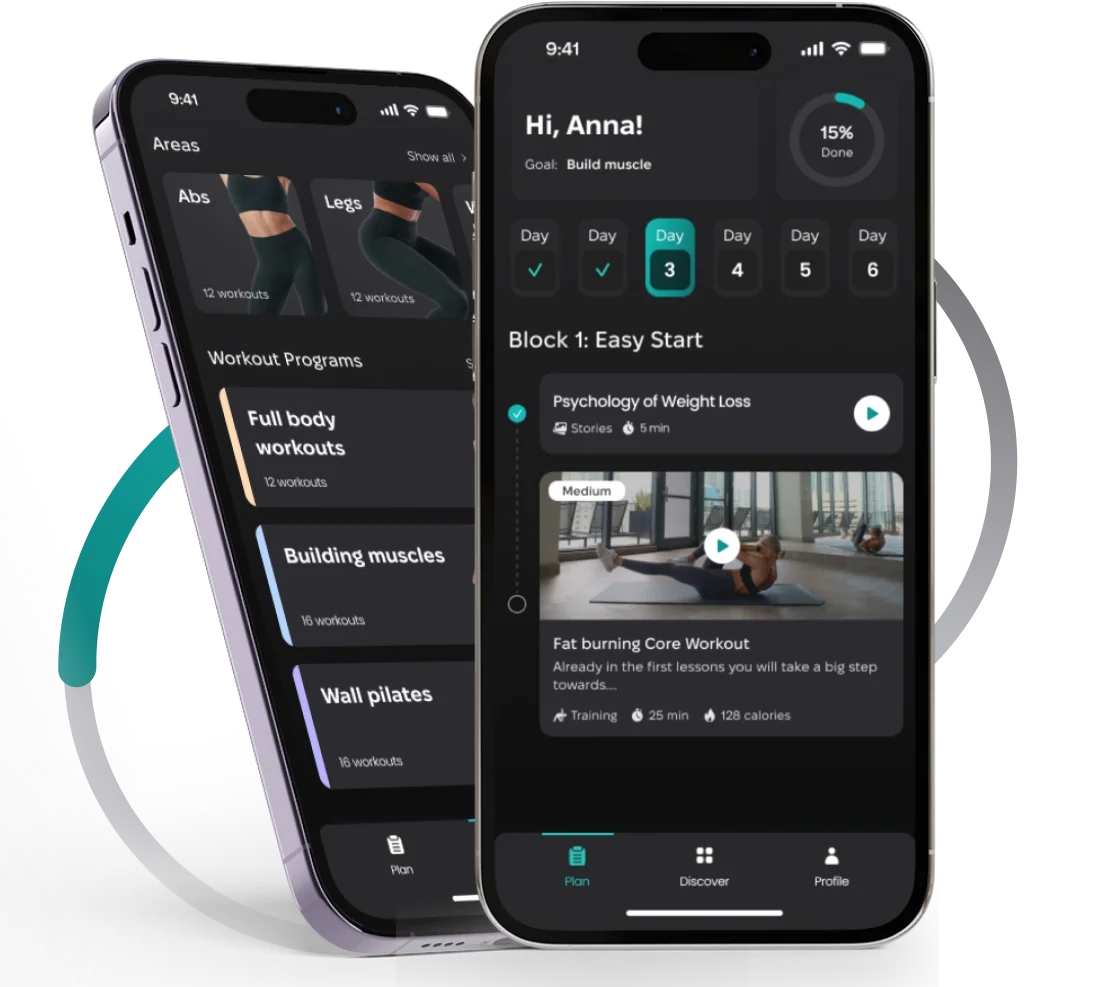Find Your Perfect Meal
Calorie Plan
Your daily calorie intake is the foundation of your fitness journey. If you know your ideal calorie intake, you ensure that your body gets enough fuel while making progress toward your desired results.
Whether you want to lose weight, maintain, or build muscle, this calorie calculator test will help you determine the right amount of nutrients for your goal. By answering a few simple questions, you’ll receive personalized calorie and macronutrient targets tailored to your needs. This knowledge will empower you to make informed choices about what you consume in a day, setting you up for long-term success.

Calculate
Your Perfect Calorie Plan
1. What is your gender?
2. What is your age?
3. What is your height?
4. What is your current weight?
5. What is your activity level?
6. What is your primary goal?


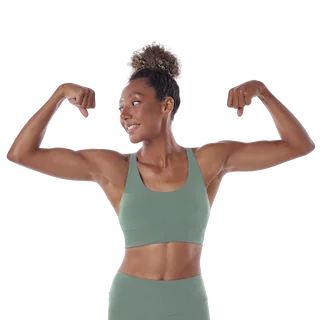
7. How quickly do you want to reach your goal?
Results
Your key metrics are:
Basal Metabolic Rate (BMR):
Total Daily Energy Expenditure (TDEE):
Recommended Daily Calories:
Macronutrient Breakdown
Protein: – grams – Essential for muscle & recovery
Carbs: – grams – Your body’s primary energy source
Fats: – grams – Supports hormones & nutrient absorption
Disclaimer
This test offers general insights and may not reflect precise results. For a more accurate assessment, consult a nutrition and fitness professional.
Fitness & Lifestyle Tips for You

Weight Loss
For physical activity, try strength training and low –
intensity cardio sessions like walking and cycling – this will help you build muscle and burn fat efficiently.
Eat more protein
it keeps you full and helps prevent muscle loss.
Cut down on sugar & refined carbs. Instead, stick to whole, natural foods.
Stay in a calorie deficit
consume less than you burn.
Move every day when you have an opportunity
Even little things like walking or taking the stairs are a great way to stay active!
Disclaimer:
If your recommended daily calorie intake came to less than 1,200 calories, please be advised. While everyone’s metabolism is different, fewer than 1,200 calories per day will likely not provide your body with enough nutrients to function optimally. You may want to consider pursuing your weight loss goal at a more gradual pace to ensure your health is optimized.

Maintaining Weight
In your case, balance is key.
You don’t need any extreme diets, just make sure to get a healthy mix of proteins, carbs, and fats.
Exercise 3-4 times a week.
Strength training will do great for you. You can also try some fun activities like yoga, dance, or competitive sports.
Keep your portion sizes in check.
Eat mindfully, making sure to enjoy food without overeating.
Don’t forget about the importance of hydration & sleep
staying well-rested and hydrated keeps your metabolism happy.
Do regular check-ins with yourself.
Keep track of how you feel and what your body needs, then simply adjust your lifestyle and diet as needed.
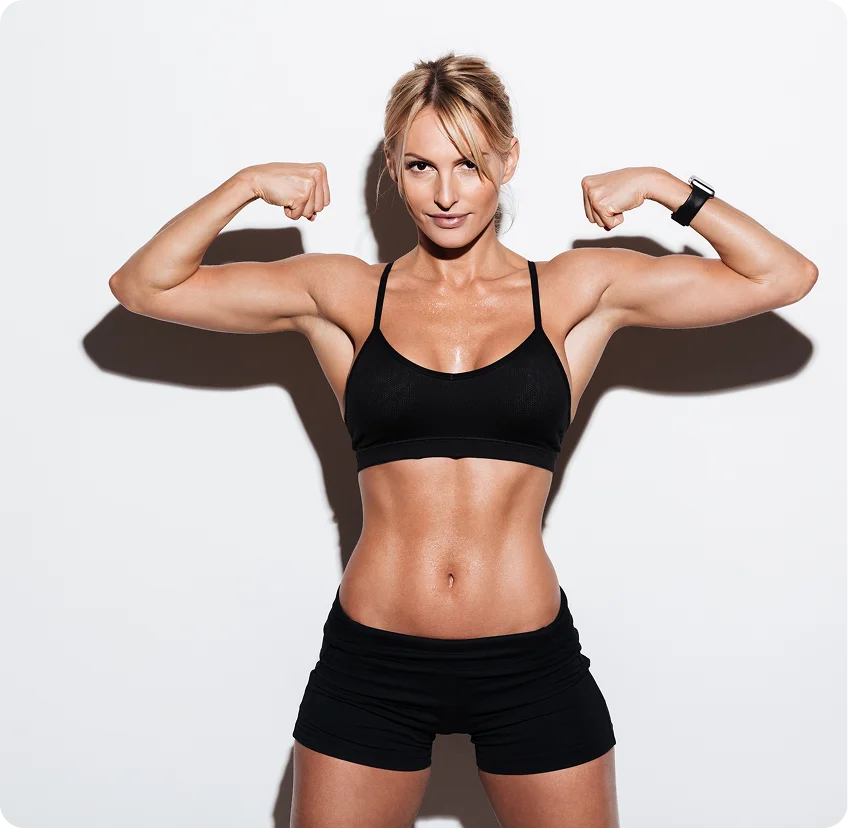
Muscle Gain
Challenge your muscles progressively.
Start easy and lift heavier over time.
Eat more calories than you burn –
extra energy fuels muscle growth.
Prioritize protein in your diet.
It can be found in lean meats, fish, eggs, and dairy, or plant-based protein.
Work out 4-6 days per week with a focus on weightlifting.
For cardio, try incline walking and Stairmaster.
Make sure to get enough rest
muscles grow when you sleep, so aim for 7-9 hours per night.
How We Calculate Your Perfect Calorie Plan
The calculations in our test are based on time-proven methods used by nutritionists worldwide. To understand your perfect daily caloric intake, you need to know three values: how much energy your body consumes at complete rest, how much it needs based on the lifestyle you lead and the type of body goal you have (which adds a specific value to the list). Let’s take a closer look at these values to understand them better.
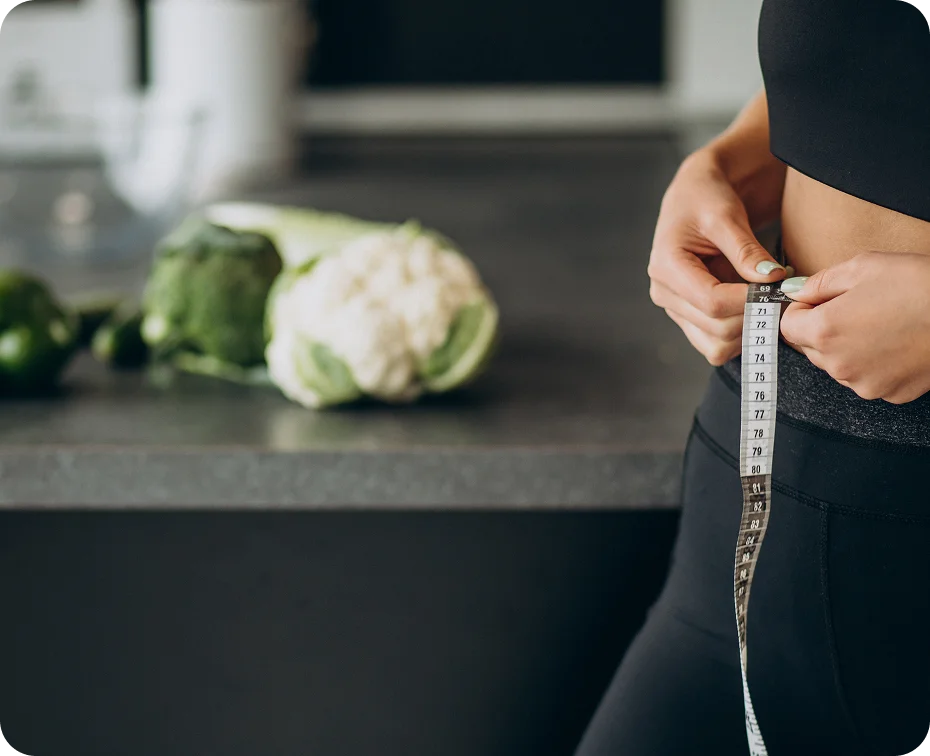
1. Basal Metabolic Rate (BMR)
We calculate your calorie spending at rest by using the Mifflin-St Jeor Equation:
- For men:
BMR=(10×weight in kg)+(6.25×height in cm)−(5×age)+5
- For women:
BMR=(10×weight in kg)+(6.25×height in cm)−(5×age)−161

2. Total Daily Energy Expenditure (TDEE)
BMR would be the baseline if you spent your days lying down, not thinking of anything. Depending on what you typically do in a day and how active you are, you need a bigger calorie intake.
To calculate it, we multiply BMR by an activity multiplier:
| Activity level | Multiplier |
|---|---|
| Sedentary | 1.2 |
| Lightly active | 1.375 |
| Moderately active | 1.55 |
| Very active | 1.725 |
| Extremely active | 1.9 |
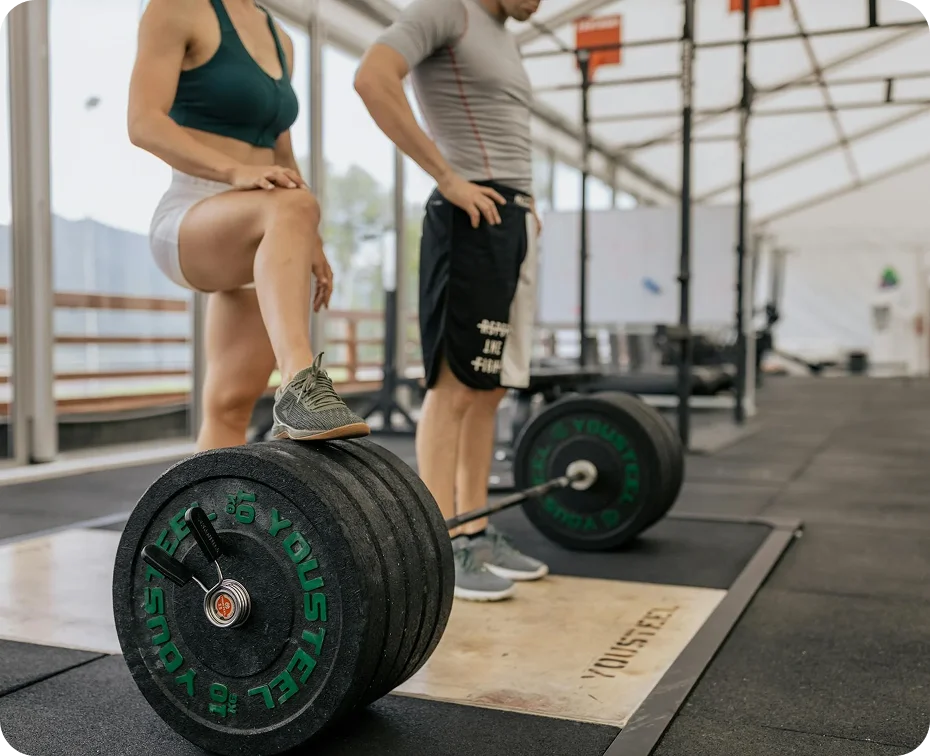
3. Adjusting for Your Body Goal
Depending on whether you want to gain or lose weight, you need to make another change to your daily caloric intake. To lose weight, you need to burn more calories than you consume and to gain mass, you need to consume more calories than you burn. If your goal is to maintain a certain weight, you don’t need to make any adjustments at this stage.
| Goal | Adjustment |
|---|---|
| Lose weight | Not in a rush: – 250 kcal/day Slow & steady: – 500 kcal/day Fast results: – 750 kcal/day |
| Maintain weight | No change (TDEE remains the same) |
| Build muscle | Not in a rush: – 250 kcal/day Slow & steady: – 500 kcal/day Fast results: – 750 kcal/day |
Interesting facts
about calories

Not all calories are equal
While a calorie is a unit of energy, the source matters. Protein and fiber-rich foods keep you fuller longer, while processed sugars can lead to energy crashes and cravings.
Muscle burns more calories at rest
Strength training helps build muscle, which increases your resting metabolic rate. This means you burn more calories even when you’re not exercising!
Drinking water can boost metabolism
Studies suggest that drinking cold water can slightly increase calorie burn, as your body uses energy to heat the water to body temperature.
Extreme calorie restriction slows metabolism
Eating too few calories can put your body into “survival mode,” making it hold onto fat and burn fewer calories, which can hinder long-term weight loss.




